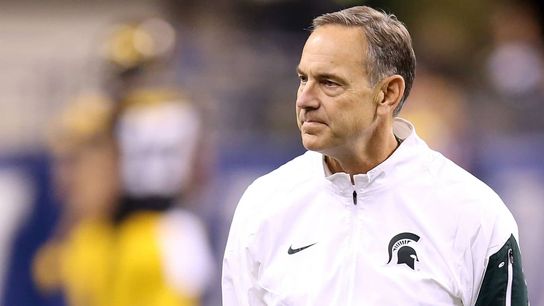Earlier this year, I was sitting in on a speaking session featuring Michigan State head coach Mark Dantonio. If memory serves me right, it was at the AFCA convention in Nashville where he was on a panel of coaches talking about discipline, or perhaps it was at the annual Michigan HS Coaches association convention.
In either instance, I distinctly remember him saying that everyone who works with millennials (widely defined as people born in 1984 or after) needs to Google "Millennial video" and watch it. I remember jotting it down at the time, along with a number of other things he said, with the intention of tracking down that video later. I knew I had seen the video Dantonio was referring to before, and noted that it was a message that should be shared with all coaches, since we're all working with (and some of us are members of) the millennial generation.
Fast forward to recently, where I got caught in a Facebook wormhole of videos. You know what I'm talking about - that moment where you find yourself watching one video, and then get sucked into the next one, and then the next, until suddenly you snap out of it and you're at the bottom of the video feed. Among those videos was the millennial video that Dantonio had referenced.
The video, which has well over 6 million views on YouTube, sheds light on some of the issues that face the millennial generation, some of its roots, and the thought process and motivations of so many of the players we all work with on a daily basis. For those that invest so much time, effort, and energy into kids today, the talk is absolutely riveting and rings true on so many different levels, even though it focuses on "Millennials in the Workplace," the same holds true for millennials in sports in a lot of respects.
Among some of the more prominent points, many backed by research, that interviewee Simon Sinek, internationally known for being a motivational speaker and author, makes are:
- 1:09 mark:"What I've learned is that I can break it down into four pieces, or four characteristics. One is parenting, the other one is technology, the third is impatience, and the fourth is environment."
- 3:15 mark:"Let's talk about technology. We know that engagement with social media and our cell phones releases a chemical called dopamine. That's why when you get a text, it feels good." "Dopamine is the exact same chemical that makes us feel good when we smoke, when we drink, and when we gamble. In other words, it is highly, highly addictive."
- 5:35 mark:"What's happening is, because we're allowing unfettered access to these dopamine-producing devices is it's basically becoming hard-wired and what we're seeing is that as they grow older, too many kids aren't able to form deep, meaningful relationships. They will admit that many of their friendships are superficial. They will admit that they don't count on their friends, that they don't rely on their friends. They have fun with their friends, but they also know that their friends will cancel on them if something better comes along. Deep, meaningful relationships are not there because they don't practice the skill set, and worse, they don't have the coping mechanisms to deal with stress. So when significant stress presents itself, they're not turning to a person, they're turning to a device, they're turning to social media and things that provide temporary relief."
- 6:25 mark:"If you're sitting at dinner with your friends, and you're texting someone who is not there, that's a problem. That's an addiction. If you're sitting in a meeting with people you're supposed to be listening to, and you put your phone on the table - either face up, or face down I don't care - that sends a subconscious message to the room that 'You're just not that important to me.' The fact that you cannot put it away is because you're addicted."
- 8:13 mark: "Everything that [millennials] want, you can have instantaneously. EVERYTHING you want, instant gratification...except job satisfaction, and strength of relationships. There ain't no app for that. They are slow, uncomfortable, meandering, messy processes."
- 8:49 mark:"It's as if they [millennials] are standing at the foot of a mountain and they have this abstract concept of impact that they want to have in the world, which is the summit. What they don't see is the mountain. I don't care if you go up the mountain quickly or slowly, but there is still a mountain. So what this young generation needs to learn is patience. Some things that really, really matter, like love, joy, love of life, self-confidence, a skill-set, any of these things, all of these things take time." "If you don't ask for help and learn that skill set, you will fall off that mountain."
- 14:15 mark:"If you don't have a phone, you just kind of enjoy the world...and that is where ideas happen. The constant engagement is not where you have innovation and ideas. Ideas happen when our minds wander or we see something and go, 'I bet we could do that.' That is innovation, but we're talking away all of those little moments."
Those are just a few of the highlights. There are so many more really, really good nuggets on why millennials think, feel, and operate the way they do, and it's fantastic insight for coaches, teachers, and parents that are looking to connect with the generation.
https://youtu.be/hER0Qp6QJNU
